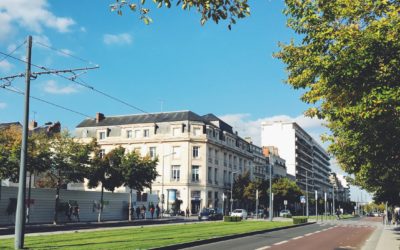Heat Pumps Outsell Gas Heaters for the First Time • 14.000 Households in Ruhr Region Get New District Heating Provider • Read more about the developments in sustainable heating and cooling in this month's news update from Germany
Germany’s district heating sector is consolidating. Uniper, the nationalized energy company rescued during the 2022 gas crisis, has sold its 750-kilometer heating network in the Ruhr region to Steag Iqony, one of the country’s largest district heating providers. The move, affecting 14,000 households, fulfills EU requirements tied to Uniper’s state aid and strengthens Iqony’s position as a leading player in climate-friendly heat supply.
Following the takeover, Iqony’s combined network in the Ruhr area will stretch nearly 1,500 kilometers, enough to supply heat to the equivalent of 435,000 households. All 130 Uniper employees will transfer to Iqony, joining its existing workforce of around 160 in the region. Uniper must still divest other assets, including the Datteln 4 coal-fired power plant, as part of EU conditions linked to its bailout. For Iqony, owned by Spanish investment firm Asterion, the acquisition aligns with its strategy to expand low-carbon heat infrastructure across Germany, where it already operates in Saarland, Hesse, and eastern regions.
The consolidation underscores a broader trend in Germany’s heating transition: large-scale networks are being integrated to improve efficiency and accelerate decarbonization. “Today is a good day for the heating transition in Germany’s largest metropolitan region,” said Andreas Reichel, head of Steag Iqony. For Swedish companies, the Ruhr region’s growing district heating landscape highlights opportunities in technologies that support grid integration, efficiency upgrades, and renewable heat supply – key components in Germany’s path to a climate-neutral future.
Read more in article from Merkur
For the first time, more heat pumps than gas boilers were sold in Germany – a milestone in the country’s heating transition. From January to June 2025, 139,500 heat pumps were purchased compared to 132,500 gas systems, according to figures from the German Heating Industry Association (BDH) and Stiebel Eltron. This shift represents a 55% increase in heat pump sales compared to last year, when gas heaters still dominated. Rising subsidies and the anticipation of stricter CO₂ pricing have clearly influenced consumer decisions.
Despite this breakthrough, the German heating market is struggling overall. Unit sales remain far below past levels, with manufacturers reporting a 22% decline in the first half of 2025, following a 46% drop in 2024. Industry experts attribute this partly to political uncertainty: the new federal government has announced a revision of heating laws and subsidy schemes, leaving homeowners unsure about long-term incentives. While the government’s target is 500,000 heat pumps sold annually, sales are still well short of that ambition. With over four million heating systems in Germany more than 30 years old, the need for modernization is pressing.
For Swedish companies, this development signals both challenges and opportunities. Demand for climate-friendly heating technology is growing, but political instability is slowing the market’s momentum.
Read more in article from Süddeutsche Zeitung
To stay updated on news for sustainable heating and cooling, follow us on LinkedIn, and subscribe to our Newsletter.
Sweden is at the forefront of decentralised heat networks technology. Our aim for “Sustainable Heating & Cooling by Sweden” is to facilitate knowledge sharing between British, French and Swedish stakeholders and develop and encourage environmental and economic best practice.
To find out how we can help you and your organisation, please contact our London or Paris-based “SHC” teams. We can introduce you to leading consultants, suppliers of technology and services who will be pleased to share know-how of the development of sustainable heating & cooling solutions.


